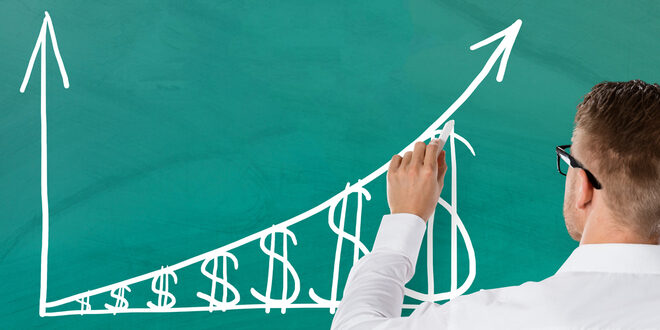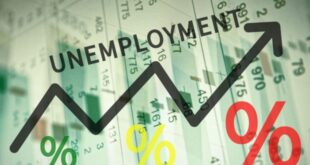Despite a few clouds, most notably a labor shortage and dysfunctional supply chains, sales are expected to rise at least seven percent compared with last year. Online shopping and discount cards are expected to get even more popular, but consumers are being told to shop early or risk not getting the items they want
It looks like the 2021 holiday shopping season will be solid, despite concerns regarding the economy brought on by COVID-19.
That’s the opinion of three major financial institutions, each of which has a close eye on the U.S. retail industry as Christmas approaches: Deloitte, the global accounting and professional services firm, Bain & Company, private equity, and venture capital firm, and Mastercard Inc.
Bain and Mastercard are predicting holiday retail sales this year will be up at seven percent compared with 2020 when sales totaled $789.4 billion.
That was an 8.32 percent year-over-year increase, according to the National Retail Federation in Washington, D.C.
The average year-over-year increase during the past decade has been about four percent.
Of the three forecasts, London-based Deloitte is the most optimistic: it believes sales could go up to nine percent compared with 2020, despite the shortage of workers, fears of inflation, problems with the global supply chain and the ongoing impact of the pandemic.
In raw numbers, that would be total sales of about $1.3 trillion from November through January.
“We anticipate strong consumer spending for the upcoming holiday season,” said Daniel Bachman, Deloitte’s U.S. economic forecaster, in the company’s 2021 forecast. “As vaccination rates rise and consumers are more comfortable being outside of the home, we are likely to see increased spending on services, including restaurants and travel, while spending on goods will continue to hold steady.”
Bachman also predicted that a drop in the savings rate to pre-pandemic levels will help boost consumer spending, and that will keep retail sales high this season despite concerns about the economy’s short-term future.
Deloitte is also predicting an 11 to 15 percent increase in e-commerce sales, which would be between $210 billion and $218 billion in sales.
Online sales between November 2020 and January 2021 increased 34.8 percent, to $189 billion, compared with the same three-month period in 2019 and 2020. But 2020 was a one-time-only increase brought on by the pandemic and subsequent shut down of the economy.
Those numbers, compiled by the U.S. Census Bureau, are seasonally adjusted and do not include gasoline stations, automobile and parts dealers and food services.
Consumers plan to spend more this holiday season than they have during recent years, but they remain concerned about the pandemic and how it might impact the economy, according to a forecast by Blackhawk Network, which sells digital gift, phone, and incentives cards online and through a network of global retailers.
“Many consumers plan to buy more gifts and spend more money than they did in 2020, but there have been notable shifts in what consumers find important and how they are planning to navigate shipping delays and out-of-stock issues,” said Theresa McEndree, Blackhawk’s head of global marketing, in the company’s Christmas spending forecast.
Twenty-four percent of U.S consumers say they plan to shop early this year because they’re concerned about shipping delays, and 36 percent say they worry about the pandemic affecting their ability to shop at all, according to Blackhawk.
Blackhawk also predicts more gift card sales this year.
U.S. shoppers plan on purchasing 15 gift cards on average, and expect to spend 41 percent of their holiday gift budget, or $272 on average, on gift cards in 2021, a 27 percent increase compared with 2020, according to Blackhawk.
Shoppers will also see fewer discounts and long lines this year because of tighter inventories, mostly because of not enough store workers and interruptions to supply chains, Deloitte, McBain, and Mastercard predicted.
Since the economy is still dealing with the pandemic, some inflation, and concerns about a possible recession, a four percent sales increase might be more realistic, according to one Inland economist.
“It’s never easy to predict; one thing you can say for certain is that online sales will continue to grow this year,” said Jay Prag, professor of economics at the Drucker School of Management at Claremont Graduate University. “It will continue to dominate, at least in certain retail sectors.”
“Some people might return to the mall this year because COVID-19 kept them from going there last year, but I’m not even sure about that,” Prag said. “People who are now working at stay-at-home jobs aren’t going to be anxious to go back to the mall.”
Prag is also predicting more early buying this year, and fewer discounts.
“Black Friday might not be as important this year,” he said.
If they do go back they might not find what they’re looking for, because a lot of retailers are having a difficult time keeping their shelves stocked with goods, said Jon Gold, vice president of supply chain and customs policy for the National Retail Federation in Washington, D.C.
Retailers typically buy their Christmas inventory almost one year in advance, with the high-point of the shipping season starting in August and lasting into early November, but that pattern has been interrupted because of the disruptions in shipping lanes, Gold said.
“We’ve had a couple of good months as the economy has started to reopen, and retail sales are doing well, “ Gold said in a recent podcast posted on the federation’s website. “But retailers are looking at all of the uncertainty in front of them, and they don’t know what to do, so they’re being cautious.”
The shipping chain problems are especially daunting now, given the popularity of online shopping.
“How are you supposed to plan when you don’t know known where things stand with the economy going forward?” Gold said. “It’s a real challenge.”
 IE Business Daily Business news for the Inland Empire.
IE Business Daily Business news for the Inland Empire.


